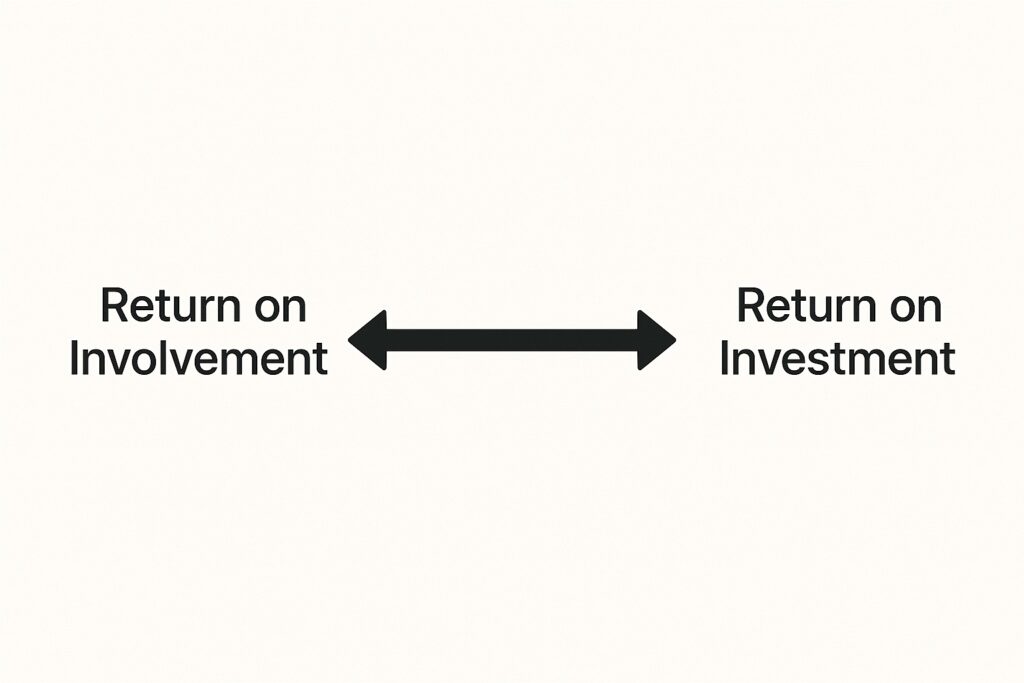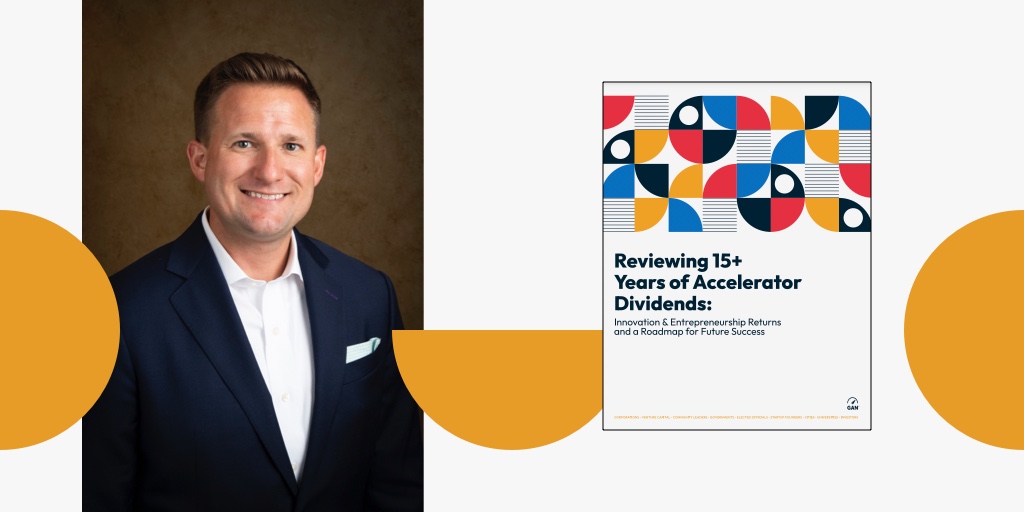What are the motivations of partners working in the startup community?
I was on a call this morning that reminded me of something I wrote about ten years ago. Back then, I described the core reasons why corporations, small and mid-sized businesses, and other partners are motivated to participate in startup ecosystems. I originally shared those thoughts with a small group, but I think it’s worth sharing more broadly today.
As you might expect, the motivations and desired outcomes for partners and sponsors vary widely. These motivations can be thought of as existing along a continuum of return. At one end of that continuum is a Return on Involvement, which tends to be more intangible. At the other end is a Return on Investment, which is more concrete and economic in nature. The opposite of these two ROIs is what I call an isolation tax, which I posted on already.

Here are some of the main reasons I’ve seen partners motivated get involved in startup communities, accelerators, incubators, and other support organizations. Moving from the most intangible to the most tangible types of return, here are some of the ways motivation of partners can manifest in your ecosystem:
Shared Beliefs/Altruism
They believe what you believe (women in tech, working in flyover regions, minority participation, industry sector) and want to feel good about supporting others who share their beliefs.
Brand Equity/Association
They wish to associate their brand with entrepreneurship, innovation, or other aspects of your program to enhance their brand and position in the marketplace. Simply, they want to be seen as cool which is a great motivation for a partner.
Recruitment
Through participation, these organizations demonstrate and communicate to future employees their commitment to innovation and entrepreneurial thinking. They will have a greater ability to recruit talent attracted to innovation and entrepreneurial thinking because these future employees want to be around startup founders. For these employers, it is about culture building, but also the fact that the employees have the option to participate in cool work and connect with the community.
Retention
Employers can use participation in your startup program as a benefit of employment. They allow their employees to take some time, give back, and participate in the innovation economy. Employees get to work on the future or help build or support the creation of the future, which is exciting—without giving up the security of a job.
Exposure to the Future/Continuing Education
Let’s face it: some jobs are not going to expose employees to modern technologies or enable them to experiment with them. Some employers have their team members partner directly with startup programs for extended periods of time to help employees learn new methods and technologies. Even the leadership in your potential partners wants to be in on the ground floor of the future.
Access
Access to the network surrounding the accelerator program can be valuable to certain partners. Mentors, investors, and other partners often have other business projects in which the partners could also participate. This is where the trusted network of your program could provide value and highly motivate a partner.
Loss Leader
Participation now will give the partner an early opportunity for relationship building that could prove valuable in the future. You see this most directly with “perks” programs, where a company will give away or steeply discount its product or service for a certain period of time—until the startup business can fully pay for the service. Ideally, this is a win-win: the startup saves cash, and the corporation provides a valuable product with the understanding that it may take 3–5 years to get a return on the relationship.
Deal Flow
Corporations and investors are looking to find disruptive companies to work with and ensure they are ahead of innovations and trends.
There are certainly other motivations for partners, but we have found these to be the most prevalent. Note: partners are not motivated in just one way. They are typically motivated by a subset of the ones listed here. For instance, a law firm is most likely to participate for shared beliefs, brand association, and as a loss leader. A Fortune 500 company may be more motivated by continuing education opportunities for employees. An advertising agency in a flyover city may be most concerned about recruitment and retention of talented employees. This is why it is important to understand the beliefs, motivations, and desires of your partners as a startup ecosystem builder.
Big Picture Motivation of Partners: Open Innovation
Generally all these strategies fit within the framework of open innovation, which is a business and innovation strategy that encourages organizations to go beyond their internal resources and actively collaborate with external partners—such as startups, startup programs, universities, customers, suppliers, or even competitors—to develop new ideas, technologies, products, or business models. If you are looking to transform your community, build it with open innovation in mind and remind your partners of the two ROIs above.



